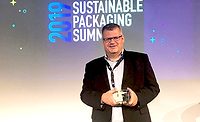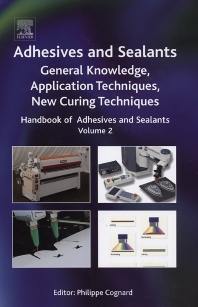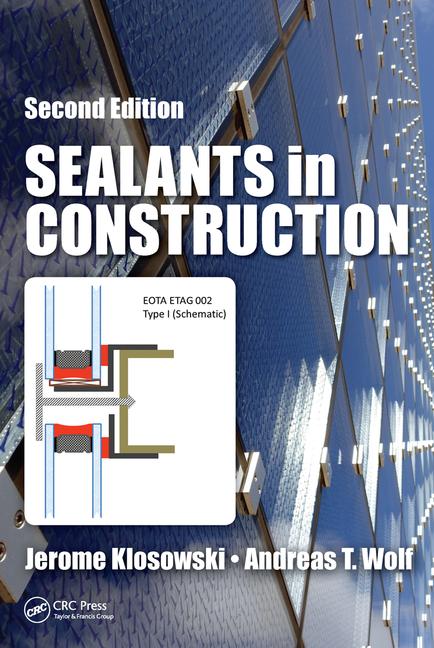Striving for Sustainability
Developing Sustainability in the Packaging of Adhesives and Sealants
A supplier of packaging technologies for adhesive and sealant manufacturers is integrating sustainability into its product development process.

Companies are becoming more aware of the environmental impact of their purchasing decisions. As a result, manufacturers of adhesives and sealants are increasingly demanding sustainable products, a trend that is driving change in the packaging sector. medmix reports that it is supporting its customers by integrating sustainability into its product development process.
At medmix, sustainability is embedded in the daily business. It is the company’s goal to reduce its environmental footprint through impactful actions in the areas of energy and water use, waste management, and the product development process.
“Traditionally, packaging has been defined by price, performance and quality,” said Gerry Hernandez, head of Global Product Management Adhesives at medmix. “However, customer demand for sustainability offers businesses like us a new dimension in which our products can excel. We have implemented sustainability into our product development process and are continually building our knowledge, applying it to new and existing products so that we can stay ahead of the curve and meet customer sustainability requirements.”
Product Life Cycle
Many aspects need to be considered when designing a more sustainable product for adhesive and sealant application systems (see Figure 1). Manufacturers must assess the quality of suppliers and the carbon emissions associated with raw materials. Design teams need to optimize products, reducing the size, weight, and amount of materials used. Production processes and associated power sources must also be considered.

Figure 1. Product life cycle considerations.
Following on from manufacturing, reducing the emissions associated with transporting products to customers is also key. Once an order has reached a customer, usage and secondary packaging need to be contended with. Developing products that can be reused further helps to improve sustainability.
“We consider products throughout the entire life cycle,” said Jim Giger, head of Technology Development at medmix. “The only way to accurately assess the sustainability of a particular design is with hard data. Internally, and with independent third parties, we carry out accurate CO2 footprint analysis of the products in our range. This benchmarking is especially important, as it provides us with information we can share with our customers, ensuring we are being transparent in our sustainability approach. Our product development process includes eco-design principles to ensure that we optimize the sustainability of new products in terms of raw materials, design, process, transport, usage and end of life.”
Design Knowledge
medmix reports a primary example of this in action is the MIXPAC™ ecopaCC™ cartridge for adhesives and sealants. During an independent life cycle analysis, the ecopaCC was found to produce less than a quarter of the total gCO2-eq emissions of a similar solid cartridge. Its design reduces plastic waste by up to 82% when compared to traditional solid cartridges, while it can be packed into four times less space when empty, helping to minimize transport emissions. The ecopaCC is actively designed with the eco-design principles in mind for adhesive and sealant applications in construction, aerospace, mining, and more.

Reduced volume leads to savings in transportation costs.
“The knowledge we gained developing the ecopaCC is what we are using to inform our sustainability strategy going forward,” Giger said. “We are assessing how more sustainable materials, such as recycled plastics or design changes can be implemented across our existing range and to new concepts. Our key aim is to introduce these new materials without any compromise in performance. We’re also focusing on how we can optimize production processes and our power sources to make sustainability gains in this area too.”
Listening to the Market
To gather intelligence and inform the company’s long-term sustainability approach, medmix has reportedly paid close attention to its customers and evolving legislation regarding packaging worldwide.
“We are seeing legislation designed to reduce wastage being introduced worldwide, from the EU to China,” Giger said. “As a packaging manufacturer, it is imperative that we stay ahead of this, ensuring that our products meet these regulations or even exceed them. This legislation will become more stringent, and we will ensure we are using appropriate materials, reducing secondary packaging and promoting reuse and recycling wherever possible.”
According to Hernandez, “Our customers are approaching us regarding our more sustainable products. There is an increased sense of urgency across the industry to improve sustainability. If we can provide the hard data to show a solution is more sustainable, more and more of our customers will be interested in adopting it. We want to produce the products that our customers are asking for, while sharing our journey with complete transparency.”
Innovating Sustainably
Sustainability is being built into the entire medmix range. The company is committed to providing hard data on the CO2 footprint of its products, moving to more sustainable materials, and using low-carbon power sources.
“Essentially, we are a market driven company, which is continuously implementing improvements across the organization,” Hernandez said. “This spirit of innovation has meant that we have been able to add a sustainable approach to our product development process early on. As a result, we design sustainability into our products, rather than simply reacting to market conditions. At the same time, we provide our customers with all the data to make an informed and more sustainable purchase.”
For more information, visit www.medmix.swiss.
Note: MIXPAC and EcopaCC are trademarks belonging to medmix Switzerland AG. The medmix trademark is owned by medmix AG. Images courtesy of medmix.
Looking for a reprint of this article?
From high-res PDFs to custom plaques, order your copy today!








